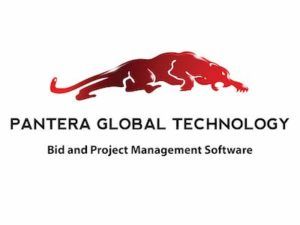Staying up to date with what is happening in the market is critical for commercial property managers. The demand for business space is quickly changing due to advances in technology, the drive for sustainability, and the recent health-triggered economic crisis.
In the current issue of the CCR magazine, our editor Michael Pallerino talks about how the pandemic has forced people to change the way they dine. He looks at how responsive businesses are riding and thriving (not drowning) amidst the waves.
Property managers must also do likewise. They must keep abreast with these trends and address them creatively to stay competitive. We’ve made it easy for you. Below are five commercial property management trends that you should be watching.

Increasing Retail-to-Industrial Conversions
Last year there was a surge in demand for e-commerce due to the pandemic. The resultant stress on the brick and mortar retail sector accelerated the wave of transformation of under performing retail spaces into distribution facilities. According to a report by CBRE, the retail-to-industrial conversion trend did not begin last year. As of the summer of 2020, nearly 14 mill sq. ft of retail space in the United States was converted or was in the process of conversion to industrial units.
Malls were turning into warehouses and data centers.
However, not all under performing retail spaces are ripe for the retail-to-industrial conversion. The main determinants are community needs and zoning challenges. If you are looking to convert a parched retail space, consider the following:
- If the financials of such a transformation make sense over any other use.
- If there is strong demand for industrial spaces in the area.
- If the local government is willing to review zoning rules.
Shift to Shorter and More Flexible Lease Terms
The pandemic-driven economic pressure and uncertainty also pushed companies to look for shorter lease terms and more agile office solutions. According to JLL (a global commercial real estate firm), office lease terms are getting shorter. In the US, commercial space renters are shunning the traditional 10-year lease agreements. Last year the average lease term fell by 15%, to seven years. They predict a further drop.
But renters are not just looking for shorter lease terms. They are also driving for more agile office solutions. Before the pandemic, many companies had not incorporated agile office strategies. However, today, companies want to be in a better position to react to uncertainty. They are approaching their end of the lease agreements by looking to make the most of their current space. Arrangements like co-working memberships and creating sub-urban outposts are becoming more popular as firms shift some of their staffers to work-from-home permanently.
Commercial property managers who recognize and accommodate their tenant’s need for agility are likely to thrive in the future.
Proactive Contract Terms
As the economic stresses continue to bite, especially for retail and other commercial renters like restaurants, a growing number of establishments are unable to meet their rent obligations.
According to the New York Times, by May 2020, 31% of renters in the US could not pay the rent.
Of course, no one wants to breach a lease agreement. But the circumstances, for instance, the shutdown order for all restaurants and dine-in facilities in some states, drove entrepreneurs to do it.
To avoid further losses, tenants turn to legal principles like force majeure to discharge themselves from the contractual obligations. But to invoke this principle, it must be stated in the contract and the circumstances listed. Otherwise, tenants turn to the common law’s doctrine of frustration which is harder to argue and more complicated.
By including elaborate force majeure clauses, property managers can cash in on the burgeoning demand for flexible leases.
The Sustainability Trend
Amidst the economic and health pressures, sustainability is emerging as a must-watch trend for commercial property managers.
The new generation of millennials places more significance on personal values like work-life balance and environmental sustainability. These issues also resonate with the ultimate customers and investors.
Millennials are not only taking over a substantial proportion of workers in the US, but they are also set to take over as business leaders. As such, buildings that prioritize employee wellness and environmental issues like energy efficiency and low carbon footprints are likely to receive more business from millennial-ran firms.
Commercial property managers who push for green initiatives in their portfolio of assets will thrive in such an environment.
The Tech Trend
The health crisis also triggered a surge in the use of technology by commercial property managers. In just a couple of weeks, property management firms had taken to technology to cope with the pandemic. Some of the measures included:
- Migrating their work forces to remote working.
- Adopting cloud-based property management software and workforce productivity tools.
- Moving tenant communications to the online channels.
- Taking prospective renters through virtual property tours.
Property management firms wanted to enhance their agility. Technology is a central part of this drive, and it has become an essential part of their day-to-day operations.
However, to remain nimble, property managers must balance tactical and strategic moves. They should develop structured plans that entrench various technologies and data analytics. Along with this, they should invest in cybersecurity and data privacy.
A final thought
The economic downturn triggered by the health crisis has presented several challenges for commercial property managers, especially in retail spaces. However, some brands say they will increase brick-and-mortar. These trends show that there are opportunities for property managers. Those who proactively engage tenants, communities, and authorities to resolve specific issues will thrive. Embracing technology solutions in property management will enhance their responsiveness and improve productivity.










 The 2024 virtual Men’s Round Table will be held Q4, 2024, date TBD.
The 2024 virtual Men’s Round Table will be held Q4, 2024, date TBD.












